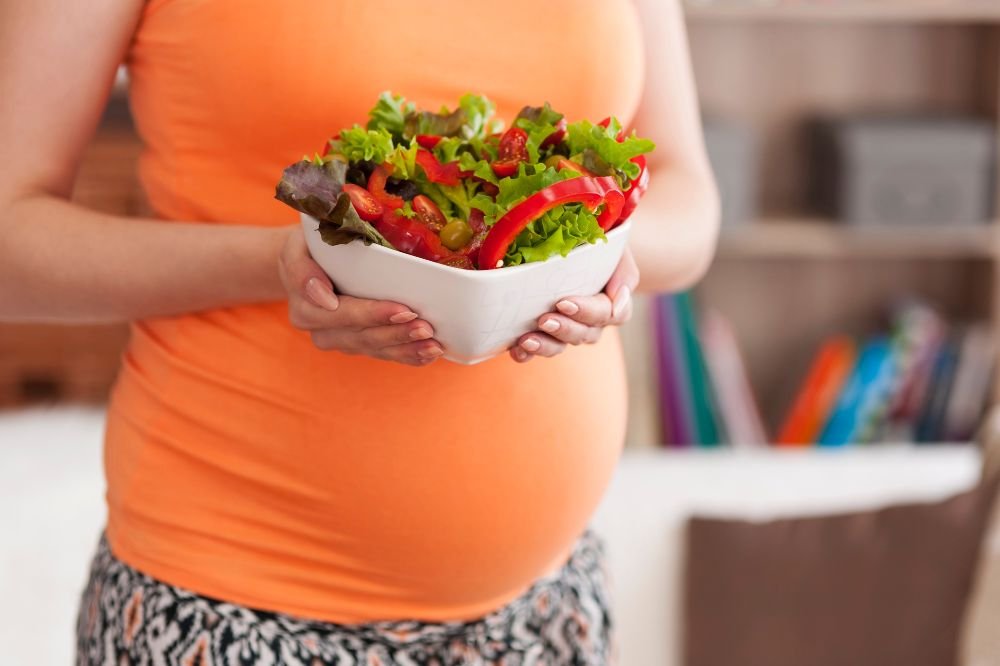Shedding Pounds Quickly After Childbirth: A Practical and Effective Diet Plan for Healthy Weight Loss.
Bringing a new life into the world is an extraordinary journey that comes with its unique set of challenges and joys.
One of the most common concerns that new mothers face after childbirth is shedding the pounds gained during pregnancy.
The postpartum weight loss challenge is a topic that resonates with countless mothers worldwide, as they strive to regain their pre-pregnancy shape and feel confident in their bodies once again.
The journey of pregnancy and childbirth is a transformative experience that leaves lasting physical and emotional imprints on a woman’s life.
While it’s essential to embrace the changes that motherhood brings, it’s also natural to desire a return to one’s pre-pregnancy weight and fitness level.
However, it’s crucial to approach postpartum weight loss with care and understanding, as the female body undergoes profound changes during pregnancy and childbirth.

The Importance of a Healthy Diet Post-Childbirth
In the whirlwind of diaper changes, sleepless nights, and the constant demands of a newborn, it’s easy for a new mother’s self-care to take a back seat.
However, maintaining a healthy diet post-childbirth is of paramount importance for both the mother’s well-being and the baby’s development.
A healthy diet provides the essential nutrients needed for a new mother’s recovery and helps her cope with the physical and emotional challenges of motherhood.
Proper nutrition is the foundation upon which postpartum healing and weight loss can be built. It not only aids in the recovery of the body but also boosts energy levels, enhances mood, and supports the production of breast milk if breastfeeding.
Moreover, a nutritious diet is an integral part of any successful postpartum weight loss plan.
It allows for steady, sustainable weight loss while ensuring that the mother’s nutritional needs are met.
Contrary to quick-fix diets or extreme restrictions, a balanced postpartum diet nourishes the body and aids in shedding excess pounds in a healthy and gradual manner.
Setting Realistic Weight Loss Goals
In the quest to shed post-pregnancy weight, setting realistic goals is key to success.
It’s essential to remember that your body has just gone through an incredible transformation, and it needs time to recover and adapt to its new state.
Unrealistic expectations can lead to frustration and disappointment.
When setting weight loss goals, it’s vital to consider various factors, including your pre-pregnancy weight, lifestyle, and overall health.
Consulting with a healthcare professional is highly recommended to determine a safe and realistic target weight and rate of loss.
Your healthcare provider can also provide guidance on the specific nutritional needs of your postpartum body.
Realistic weight loss goals may involve losing one to two pounds per week, which is considered a healthy and sustainable rate.
Keep in mind that everyone’s journey is unique, and comparisons to others can be discouraging.
Focus on your personal progress and well-being rather than trying to meet unrealistic standards.
Understanding Postpartum Weight Loss

Factors Affecting Postpartum Weight Retention
The journey to postpartum weight loss is unique for each new mother and influenced by various factors.
Understanding these factors is crucial for devising an effective and sustainable weight loss plan.
Hormonal Changes
One of the primary factors influencing postpartum weight retention is the significant hormonal changes that occur during pregnancy and after childbirth.
During pregnancy, the body experiences a surge in hormones like estrogen and progesterone, which play a critical role in supporting the growth and development of the fetus.
After giving birth, these hormone levels drop dramatically, which can lead to various effects on the body.
One notable change is the reduction in water retention that occurs after pregnancy, which can result in a rapid initial weight loss.
However, hormonal fluctuations can also trigger increased appetite and food cravings, making it more challenging to control calorie intake.
Moreover, hormonal changes can affect the metabolism, slowing it down temporarily.
This metabolic slowdown is the body’s way of conserving energy to support breastfeeding and postpartum recovery.
While it can make weight loss seem more challenging, it’s essential to recognize that these changes are temporary and part of the body’s natural adjustment process.
Lifestyle Adjustments
The arrival of a newborn brings about a dramatic shift in lifestyle for new mothers.
The demands of caring for a baby, coupled with the exhaustion that often accompanies sleepless nights, can disrupt established routines, including exercise and meal preparation.
New mothers may find themselves with limited time and energy for physical activity, which can hinder weight loss efforts.
Additionally, stress and lack of sleep can lead to emotional eating and poor food choices, further complicating the postpartum weight loss journey.
Breastfeeding and Its Impact

Breastfeeding is a personal choice, and for those who choose it, it can have a significant impact on postpartum weight loss.
While breastfeeding burns extra calories, it’s not a guaranteed weight loss method for everyone.
The effects of breastfeeding on weight loss vary among individuals.
Some women experience rapid weight loss while breastfeeding, as their bodies utilize stored fat to produce breast milk.
However, others may find that breastfeeding increases their appetite, leading to increased calorie intake.
It’s essential to listen to your body’s hunger cues and make healthy food choices to support both your nutritional needs and your baby’s.
Furthermore, some women may retain additional weight during breastfeeding due to increased water retention.
The key is to approach breastfeeding with a balanced mindset, understanding that it has both nutritional and emotional benefits for both mother and child.
The Need for a Balanced Approach to Weight Loss
Given the complexity of postpartum weight loss, it’s clear that a balanced approach is essential for success.
Quick-fix diets, extreme restrictions, or excessive exercise can be harmful during the postpartum period.
Instead, it’s crucial to prioritize both your physical and emotional well-being while working towards your weight loss goals.
A balanced approach to postpartum weight loss involves several key principles:
Patience and Self-Compassion: Recognize that your body has undergone significant changes, and it will take time to heal and adjust.
Be patient with yourself and avoid self-criticism.
Embrace self-compassion and acknowledge the incredible journey of motherhood you’re on.
Gradual Weight Loss: Instead of aiming for rapid weight loss, focus on gradual and sustainable changes.
Aim to lose one to two pounds per week, which is considered a healthy and realistic rate.
Slow and steady progress is more likely to lead to long-term success.
Nutrient-Rich Diet: Prioritize a nutrient-rich diet that supports your recovery and provides energy for your new role as a mother.
Include plenty of fruits, vegetables, lean proteins, whole grains, and healthy fats in your meals.
Hydration: Proper hydration is essential for overall health and can also aid in weight loss.
Drinking enough water helps control appetite and supports bodily functions, including metabolism.
Gentle Exercise: Incorporate gentle postpartum exercises into your routine as you feel comfortable.
Consult with your healthcare provider before starting any exercise program.
Activities like walking, postpartum yoga, and pelvic floor exercises can be beneficial.
Support System: Seek support from loved ones, friends, and healthcare professionals.
Discuss your weight loss goals and challenges with your partner, and consider joining postpartum support groups where you can connect with other mothers going through similar experiences.
Building a Foundation for Healthy Weight Loss
Losing postpartum weight healthily and effectively begins with establishing a strong foundation.
This foundation encompasses not only physical aspects but also emotional and mental components, ensuring a holistic approach to your post-pregnancy fitness journey.

Consultation with a Healthcare Professional
Postpartum Check-Up
Before diving into any postpartum weight loss plan, it’s essential to prioritize your health and well-being.
Scheduling a postpartum check-up with your healthcare provider should be your first step.
This visit allows your healthcare professional to assess your physical recovery, address any concerns, and provide guidance specific to your individual circumstances.
During the postpartum check-up, your healthcare provider will evaluate factors such as your overall health, any complications during childbirth, and the status of your pelvic floor muscles.
They will also discuss your reproductive health, contraception options, and any necessary vaccinations.
This comprehensive assessment ensures that you are physically ready to embark on a weight loss journey.
Dietary Recommendations
One of the most valuable aspects of consulting with a healthcare professional is receiving personalized dietary recommendations.
Your healthcare provider can offer insights into your specific nutritional needs during the postpartum period, taking into account factors such as breastfeeding, hormonal changes, and any underlying health conditions.
Dietary recommendations may include guidance on calorie intake, macronutrient balance, and the inclusion of essential nutrients like calcium, iron, and folate.
Your healthcare provider can also help you identify any dietary restrictions or allergies that need to be considered when crafting your postpartum diet plan.
Additionally, discussing your weight loss goals with a healthcare professional ensures that you set realistic and safe targets.
They can help you establish a customized plan that aligns with your individual health status and lifestyle.
Patience and Self-Compassion
The journey to postpartum weight loss is a marathon, not a sprint. It’s vital to approach this process with patience and self-compassion.
Recognize that your body has been through an incredible transformation, and it deserves time and care to recover fully.
New mothers often face societal pressures to bounce back to their pre-pregnancy bodies quickly.
However, these expectations can be unrealistic and harmful.
Every woman’s postpartum journey is unique, and there is no one-size-fits-all approach to weight loss.
It’s essential to embrace your body at every stage and avoid comparing yourself to others.
Practicing self-compassion involves:
Celebrating Small Wins: Acknowledge and celebrate your achievements, no matter how small they may seem.
Whether it’s choosing a nutritious meal or completing a short postpartum workout, each step brings you closer to your goals.
Listening to Your Body: Pay close attention to your body’s cues, especially hunger and fullness.
Eat mindfully, and when you’re hungry, and stop when you’re satisfied. This approach helps you foster a healthier relationship with food.
Managing Stress: High stress levels can hinder weight loss efforts.
Prioritize stress management techniques like meditation, deep breathing, or seeking support from a therapist or counselor.
Shedding Pounds Quickly After Childbirth – Importance of Gradual Weight Loss

In the pursuit of postpartum weight loss, gradual progress is the key to success.
Rapid or extreme weight loss methods are not only unsustainable but can also be detrimental to your health, particularly during the postpartum period.
Gradual weight loss provides several advantages:
Safety: Rapid weight loss can strain your body and lead to nutrient deficiencies, muscle loss, and fatigue.
Gradual weight loss minimizes these risks and allows your body to adjust gradually.
Sustainability: Slow and steady weight loss is more likely to be maintained over the long term.
It allows you to develop sustainable habits that can become a part of your lifestyle.
Avoiding Muscle Loss: Gradual weight loss reduces the likelihood of losing lean muscle mass, which is essential for maintaining a healthy metabolism and overall strength.
Better Emotional Well-Being: A gradual approach is less likely to lead to feelings of deprivation and frustration.
It helps you maintain a positive relationship with food and your body.
To achieve gradual weight loss, focus on making small, sustainable changes to your diet and lifestyle.
Set realistic weekly or monthly goals and track your progress.
Celebrate your successes, and if you encounter setbacks, view them as opportunities to learn and adjust your approach.

Crafting a Postpartum Diet Plan
One of the fundamental pillars of postpartum weight loss is the creation of a well-balanced and nutrient-rich diet plan.
A thoughtful and nourishing diet not only supports your body’s recovery after childbirth but also promotes healthy weight loss.
In this section, we will explore the essential components of crafting a postpartum diet plan that is both effective and sustainable.
Nutrient-Rich Foods for Recovery
Lean Proteins
Proteins are the building blocks of the body and play a crucial role in postpartum recovery.
Including lean sources of protein in your diet can help repair and rebuild tissues, maintain muscle mass, and provide a feeling of fullness.
Opt for lean protein sources such as skinless poultry, lean cuts of beef or pork, fish, tofu, legumes, and low-fat dairy products.
These options are not only rich in protein but also provide essential vitamins and minerals.
Fiber-Rich Carbohydrates
Carbohydrates are an essential source of energy, especially for new mothers who may be sleep-deprived and in need of sustained energy throughout the day.
However, the key is to choose complex carbohydrates that are rich in fiber and nutrients.
Whole grains like brown rice, quinoa, oats, and whole wheat bread are excellent choices.
Fiber aids in digestion, helps regulate blood sugar levels, and promotes a feeling of fullness, reducing the likelihood of overeating.
Healthy Fats
Contrary to the misconception that fats should be avoided during weight loss, healthy fats are a vital component of a well-balanced diet.
They are essential for hormone production, brain function, and the absorption of fat-soluble vitamins (A, D, E, and K).
Incorporate sources of healthy fats like avocados, nuts, seeds, and olive oil into your meals.
Omega-3 fatty acids, found in fatty fish like salmon and trout, are particularly beneficial for both postpartum recovery and weight loss.
Vitamins and Minerals

A diverse and colorful array of fruits and vegetables is essential to ensure you receive a wide spectrum of vitamins and minerals.
These nutrients support your immune system, assist in healing, and provide antioxidants that protect your body from oxidative stress.
Aim to include a variety of fruits and vegetables in your diet, with an emphasis on leafy greens, berries, citrus fruits, and cruciferous vegetables like broccoli and cauliflower.
Hydration and Its Role in Weight Loss
Hydration is often overlooked but is a critical aspect of any weight loss plan, especially during the postpartum period.
Drinking an adequate amount of water not only supports overall health but can also aid in weight loss. Here’s how:
- Appetite Control: Sometimes, the sensation of thirst is mistaken for hunger. Staying well-hydrated can help you distinguish between thirst and true hunger, preventing unnecessary calorie consumption.
- Metabolism Support: Proper hydration is essential for metabolic processes, including the breakdown of stored fat for energy. Dehydration can slow down your metabolism, making weight loss more challenging.
- Digestive Health: Water is necessary for proper digestion and the absorption of nutrients. It helps move food through the digestive tract and prevents constipation.
Ensure you drink enough water throughout the day, aiming for at least 8-10 cups, or more if you’re breastfeeding or physically active.
Herbal teas and infused water with slices of citrus, cucumber, or mint can make hydration more enjoyable.
Meal Timing and Portion Control
Meal timing and portion control are vital components of a successful postpartum weight loss plan. Consider the following tips:
Regular Meals: Establish a routine by eating regular, balanced meals throughout the day. Skipping meals can lead to overeating later on and negatively impact your metabolism.
Snacking Wisely: Opt for healthy snacks like yogurt, nuts, fruits, or veggies with hummus to keep your energy levels stable and prevent excessive hunger between meals.
Mindful Eating: Pay attention to hunger and fullness cues. Eat slowly and savor your food, allowing your body to register when you’re satisfied. Avoid distractions like smartphones or TV during meals to maintain mindfulness.
Portion Control: Be mindful of portion sizes. Use smaller plates and bowls to help control portions and prevent overeating. It’s also helpful to measure or weigh your food until you have a good sense of appropriate portions.
Avoiding Empty Calories and Processed Foods
To maximize the effectiveness of your postpartum diet plan, it’s essential to minimize or avoid foods that provide empty calories and offer little nutritional value.
Processed foods, sugary snacks, and sugary beverages are examples of culprits that can hinder your weight loss efforts.
Empty calories provide energy without essential nutrients, leaving you feeling unsatisfied and craving more.
These foods can also lead to blood sugar spikes and crashes, which can contribute to cravings and overeating.
Instead of processed foods, prioritize whole, unprocessed options that nourish your body and promote a feeling of fullness.

Postpartum-Friendly Meal Ideas
Now that we’ve discussed the importance of a balanced postpartum diet plan, let’s delve into some delicious and nourishing meal ideas that are tailored to support your post-pregnancy weight loss journey.
These meal suggestions prioritize nutrient-rich ingredients, portion control, and variety to keep your taste buds satisfied and your body well-nourished.
Breakfast Options
Greek Yogurt Parfait: Start your day with a bowl of Greek yogurt topped with fresh berries, a drizzle of honey, and a sprinkle of nuts or seeds.
Greek yogurt is rich in protein and probiotics, aiding in digestion and providing a feeling of fullness.
Oatmeal with Fruit: Cook up a bowl of oatmeal and add sliced bananas, berries, or diced apples for natural sweetness.
Top with a spoonful of almond or peanut butter for healthy fats and added flavor.
Vegetable Omelet: Whisk together eggs and pour them into a hot non-stick pan.
Add chopped spinach, tomatoes, and bell peppers for a nutrient-packed omelet. Sprinkle with a little cheese for extra flavor.
Whole Grain Pancakes: Whip up whole grain pancakes using whole wheat flour or oats. Serve with a dollop of Greek yogurt and a side of fruit for added fiber and protein.
Lunch and Dinner Ideas
Grilled Chicken Salad: Toss grilled chicken breast with a variety of colorful vegetables like cherry tomatoes, cucumber, and bell peppers.
Add a handful of mixed greens and dress with a vinaigrette made from olive oil and balsamic vinegar.
Quinoa and Vegetable Stir-Fry: Cook quinoa and stir-fry a mix of vegetables such as broccoli, carrots, and snap peas in a light soy sauce or teriyaki sauce.
Add tofu or lean protein for extra substance.
Baked Salmon with Steamed Asparagus: Season salmon fillets with lemon, garlic, and herbs, and bake until flaky.
Serve with steamed asparagus drizzled with olive oil and a squeeze of lemon.
Black Bean and Vegetable Tacos: Load whole grain tortillas with black beans, sautéed bell peppers, onions, and avocado slices.
Top with salsa and a dollop of Greek yogurt for a healthier twist on tacos.
Snack Choices
Hummus and Veggies: Pair baby carrots, cucumber slices, or bell pepper strips with a generous scoop of hummus for a satisfying and nutritious snack.
Apple Slices with Almond Butter: Spread almond or peanut butter on apple slices for a sweet and crunchy snack rich in fiber and healthy fats.
Yogurt with Berries: Enjoy a cup of low-fat yogurt or Greek yogurt with a handful of fresh berries for a protein-packed and antioxidant-rich snack.
Trail Mix: Create your trail mix with a mix of nuts, seeds, dried fruits, and a touch of dark chocolate chips for a satisfying blend of protein, healthy fats, and sweetness.
Incorporating Post-Workout Meals
After incorporating postpartum-friendly workouts into your routine, it’s important to refuel with a balanced meal or snack to aid recovery and support your weight loss goals.
Protein Smoothie: Blend protein powder, spinach, frozen berries, and almond milk for a quick and convenient post-workout shake.
Protein is essential for muscle recovery, and the berries provide antioxidants.
Turkey and Avocado Wrap: Roll up lean turkey slices, avocado, and spinach in a whole-grain tortilla for a protein-packed post-workout meal that’s easy to prepare.
Quinoa Bowl: Combine cooked quinoa, grilled chicken or tofu, and a variety of roasted vegetables.
Drizzle with a homemade vinaigrette or tahini sauce for added flavor.
Chocolate Milk: Surprisingly, chocolate milk can be an effective post-workout recovery drink.
It provides a balance of protein and carbohydrates to replenish energy stores and promote muscle repair.
These meal ideas are just a starting point, and you can mix and match ingredients to create a diverse and enjoyable postpartum diet plan.
Remember to maintain portion control, stay hydrated, and choose nutrient-dense foods to support your post-pregnancy weight loss journey effectively.
Listening to your body’s hunger and fullness cues will also help you navigate meal choices and enjoy the process of nourishing yourself after childbirth.
Conclusion Shedding Pounds Quickly After Childbirth
The Significance of Postpartum Self-Care
Embarking on the journey of postpartum weight loss is more than just shedding pounds; it’s a profound act of self-care.
Pregnancy and childbirth are transformative experiences that demand a lot from your body and mind.
Therefore, taking care of yourself in the postpartum period is of utmost importance.
It’s not only about achieving a desired physical appearance but also about ensuring your well-being as you embrace the challenges and joys of motherhood.
Prioritizing self-care involves nourishing your body with nutrient-rich foods, staying hydrated, engaging in regular exercise, and managing stress.
It also entails seeking emotional support, setting realistic goals, and practicing self-compassion.
Self-care is about listening to your body’s needs and providing the care it deserves during this crucial period of recovery and adjustment.

Celebrating Your Progress and Body Resilience
Every step of your postpartum weight loss journey is a celebration of your progress and your body’s incredible resilience.
It’s easy to focus on the end goal and become disheartened by any setbacks or slower-than-expected progress.
However, it’s essential to remember that the journey itself is a victory.
Celebrate the small wins along the way, whether it’s reaching a fitness milestone, making healthier food choices, or simply finding a moment of peace amid the chaos of motherhood.
Recognize the strength and resilience your body has demonstrated throughout pregnancy, childbirth, and postpartum recovery.
Moreover, celebrate the unique beauty of your post-pregnancy body. It tells a story of strength, love, and transformation.
Embrace the changes that have occurred and be kind to yourself as you work toward your weight loss goals.
Self-acceptance and self-love are powerful motivators for long-term health and happiness.
Embracing a Lifelong Commitment to Health
As you journey through postpartum weight loss, it’s important to recognize that health is a lifelong commitment.
The habits you develop during this period can have a profound impact on your overall well-being in the years to come.
Instead of viewing weight loss as a short-term goal, consider it part of a broader commitment to health and vitality.
Make choices that support not only your weight loss goals but also your long-term health.
Continue to prioritize nutrient-rich foods, regular physical activity, and self-care practices.
Surround yourself with a supportive community of friends and family who encourage your commitment to health.
Remember that your postpartum journey is just one chapter in the story of your life.
By embracing a holistic approach to health and well-being, you can enjoy the benefits of a strong and resilient body that serves you well in all aspects of your life, including the beautiful adventure of motherhood.





